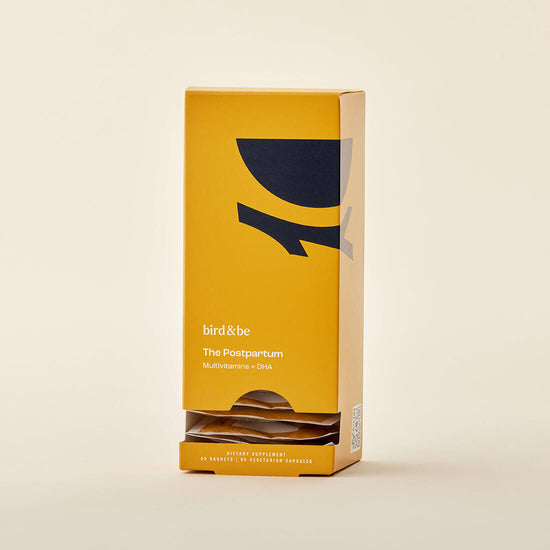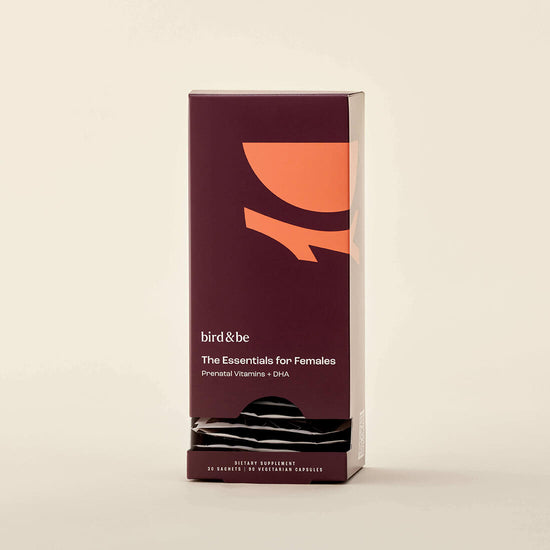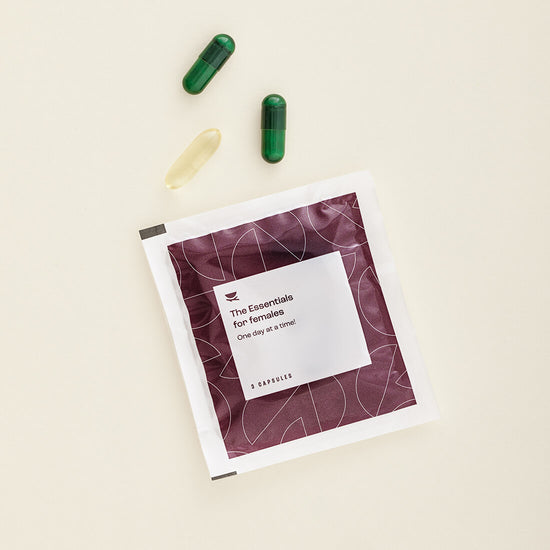No matter how you felt about sleep prior to becoming a parent, you will likely find yourself consumed by thoughts of it in the early days of being a new mom. Your own sleep, your baby’s sleep, how much or little you’re both having, when the next nap is, how long you could potentially shut your eyes for… The list of sleep-related things to obsess over is long and all-consuming in the first weeks (months? years?) of parenthood. While we can’t magically give you more hours in a day or make your baby sleep through the night, we can offer a few tips to hopefully help you feel more rested. Sleep is vital to your postpartum recovery and resting helps you recharge to tackle the next day in your maternal journey. Here are four tips to get more sleep and to feel less exhausted.
Prioritize nutrition and supplementation
Getting enough nutrition from food alone can be tough in the early days of parenthood. Your schedule is all over the place and the demands of a newborn often take you away from the kitchen—or even the ability to eat without a little babe attached to your body.
When you can, try consuming wholesome nutritious foods likes fruits or vegetables. Things like hummus and avocados are good sources of fiber and healthy fats, while whole grains that are minimally processed, like ancient grain toast with nut or seed butters, make for a nice easy snack that can be eaten with one hand—a must for those kiddos that insist on contact napping. (For more, read about the best postpartum and breastfeeding diet.)
Your nutrition insurance policy is your prenatal vitamin, so get those out if you’ve put them on the backburner. This will help ensure you get all the required and essential nutrients both you and your baby (if you’re supplying milk) need.
While eating well doesn’t necessarily guarantee more sleep, it hopefully will help keep your energy up, so you feel a little less exhausted (fingers crossed!).
Add some exercise back into your life
This might sound counterintuitive, but regular exercise, including pilates, aerobic exercise, stretching and strengthening, can actually help combat postpartum fatigue. Several studies, including a Canadian study, have shown that 15 to 30 minutes of exercise per day (three to five days a week), can significantly decrease physical and mental fatigue. Those who had more difficult deliveries will likely want to check with their doctor before starting up an exercise routine and remember to start slow as your body recovers. If you’re unsure, going for a short walk around the block every day is always a great place to start.
Sleep when you can—yes, this means napping
Take advantage of downtime when you can. Don’t be afraid of a midday or mid-morning nap if it means getting rest. The old saying that you should sleep when baby sleeps is annoying (if only it was so easy!), but it is sound advice. While you may not be sleeping eight hours every night, you can try and aim for eight hours in a twenty-four-hour period. It’s hard advice to follow when you have a list of things you’d like to do while your baby sleeps, but it is important you give yourself time to rest. At the very least give yourself permission to lay down or put your feet up, even if the TV is on and you’re not sleeping. The tasks that you feel need to be addressed can wait or, better yet, be handled by someone else. Which bring us to the next point...
Ask for (and accept) help
Many new parents want to try to do it all and have a hard time accepting help. There’s also a pull inside many moms to not be separated from their baby, making it harder to step away. However, this isn’t going to serve you or your baby and doesn’t allow your partner to participate fully in new parenthood. You will be a better parent if your needs are taken care of. If you’re lucky enough to have a support system, lean on it.
Ask if a family member or friend can watch your baby for an hour so you can take a quick nap, or a nice hot bath. Heck, just getting a quick shower can make you feel like a new person. Have a food or grocery delivery service set up or ask a friend or family member to drop off a meal for you. Ask your village to help keep your fridge and freezer stocked with easy, nutrient-dense essentials or delegate chores that you haven’t been able to get to. A friend can absolutely do the dishes and a parent can certainly take out a load of trash after visiting. Chances are your family and friends would love to know what they can do to help. Any chance you can get to rest is an opportunity to recharge and take a moment for yourself—take advantage!
This is often the hardest thing for new parents to do—ask for help—but it’s often the thing that can provide those moments of relief and self-care (however brief) that get you through the next sleepless night.
The postpartum period isn’t easy. It’s also full of contradictions. You may feel the most joyous you’ve ever felt, and you may also feel the most tired and frazzled and drained that you’ve ever felt. Just in case no one has reminded you lately, you’re doing an amazing job.







